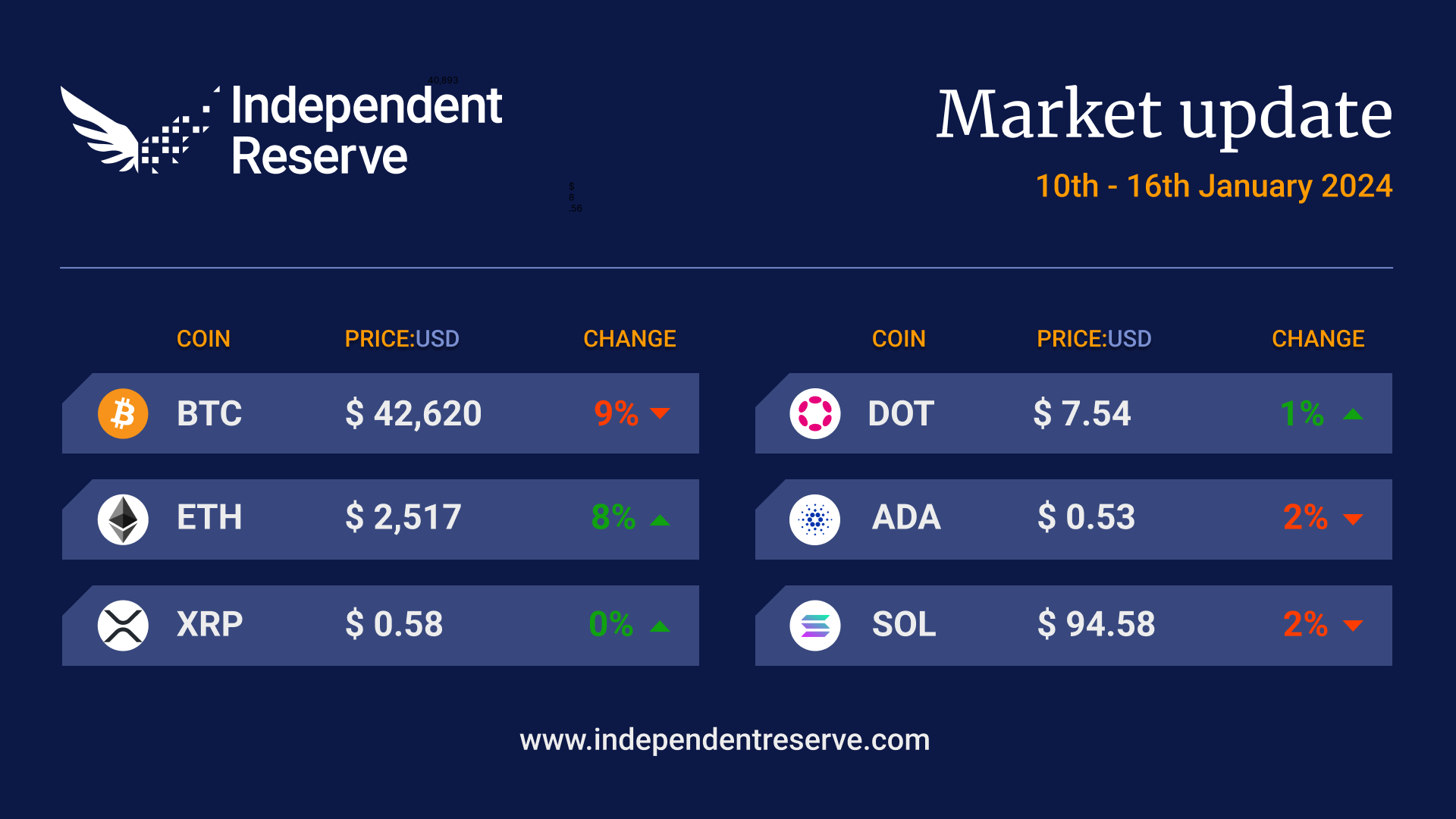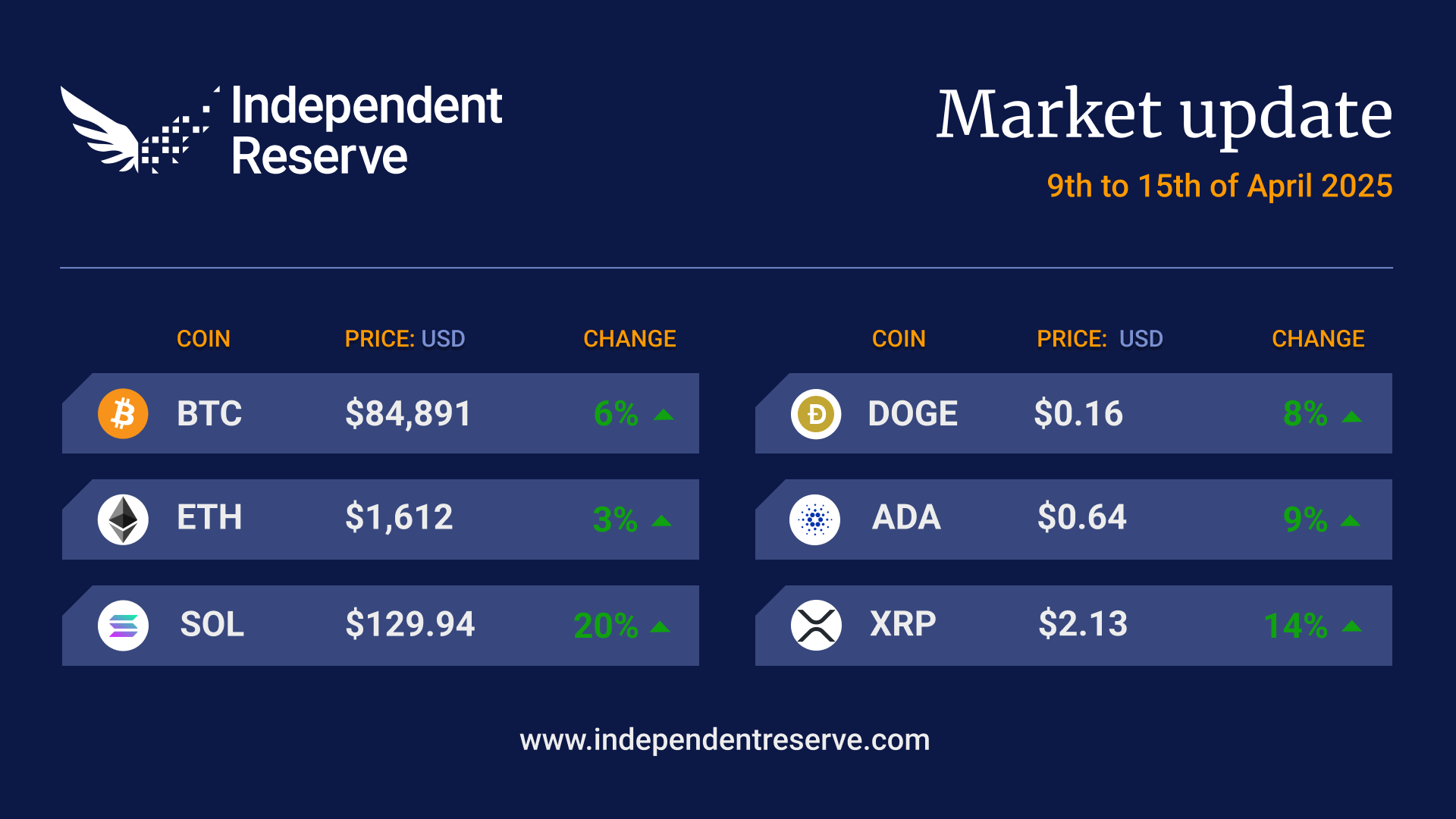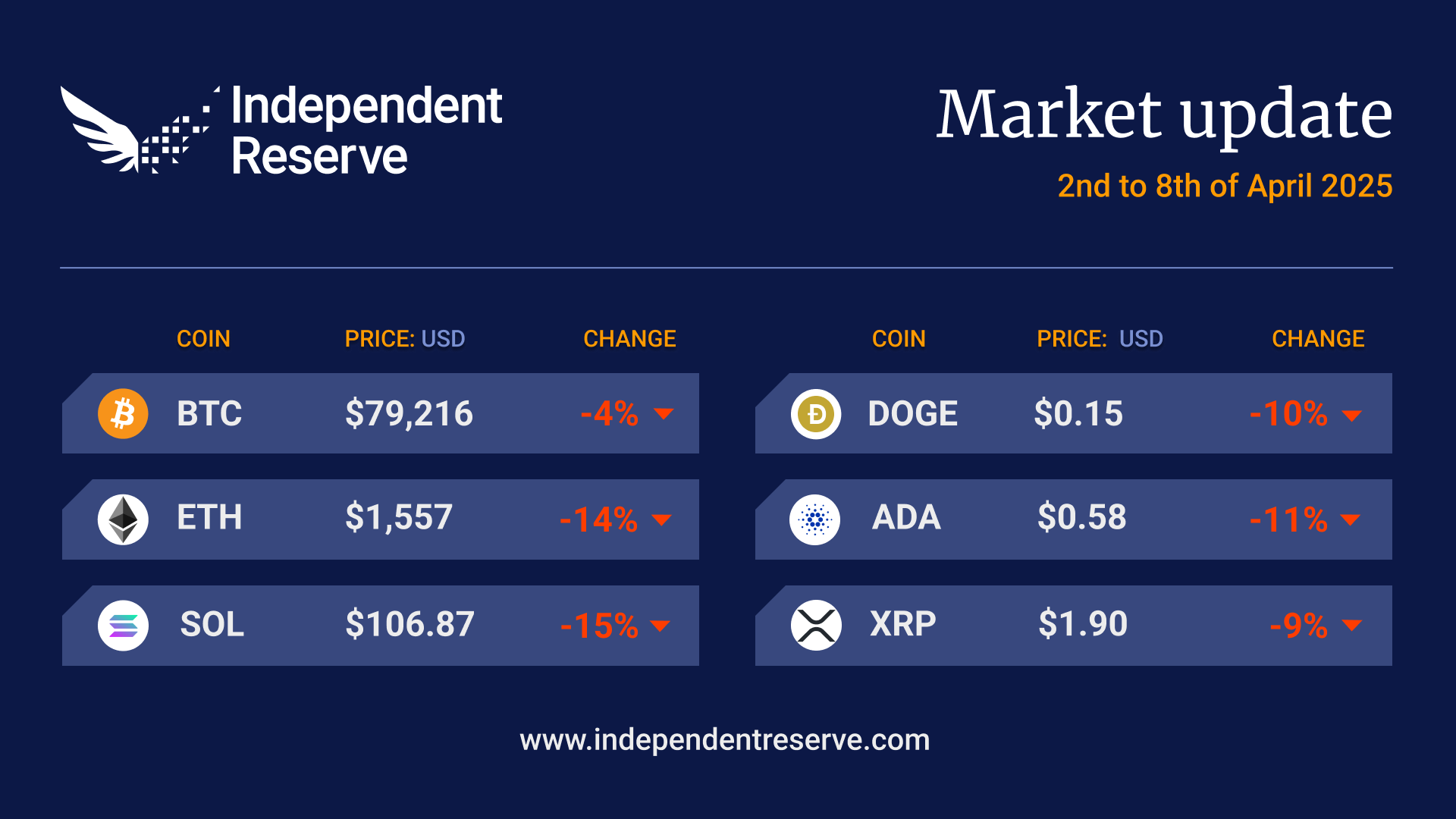Market update
It’s been a historic week, with the launch of multiple Bitcoin ETFs in the US marking a “potential paradigm shift in the global perception and use of digital assets,” according to Morgan Stanley. However, the expected billions have failed to flow in yet, with the SEC’s bungled approval process, investors fleeing Grayscale’s GBTC and delayed and incomplete TradFi reporting all playing a role. The Bitcoin price climbed to around A$73,000 (US$48.7K) on the 11th and then fell to under A$63K (US$42.6K) on the weekend, with Google searches for “why is Bitcoin dropping” increasing 1,100%. Bitcoin finished the week down 9.1% to trade at A$63,921 (US$42.7K), while Ethereum gained 8% to trade at A$3,771 (US$2,517). Solana fell 2%, XRP and Dogecoin were both flat, and Cardano lost 2%. The Crypto Fear and Greed Index has retreated to 52 or Neutral for the first time since October.

In Headlines
Bitcoin ETFs a “smashing success”
In TradFi terms the ETF launch was a massive success (unlike the real world mission to send a physical Bitcoin to the moon which failed this week). The first two days saw US$7.85 billion (A$11.79B) in trading volume across the 10 new Bitcoin ETFs (Hashdex failed to convert). “By all metrics: volume, # of trades, flows, media coverage it was smashing success, historical,” said Bloomberg ETF analyst Eric Balchunas. But, while the ETFs saw US$1.4 billion (A$2.1B) of inflows, more than half a billion flowed out of Grayscale’s Bitcoin Trust, reducing the net inflow to US$818.9 million (A$1.23B). BlackRock, Fidelity and Bitwise are the most popular funds, and the ETFs have snapped up around 30,000 Bitcoin between them, led by Black Rock’s 11,439 BTC. Coinshare’s weekly report shows a record breaking US$17.5B (A$26.3B) in volume across all digital asset funds (including the existing ones) with money flowing out of products in Canada, Germany and Sweden likely to flow into the US ETFs.
Independent Reserve in the media
Independent Reserve CEO Adrian Przelozny told Stockhead the ETFs provide the crypto industry with “validation and legitimacy”. In the Australian Financial Review he predicted an exciting year ahead with ETFs increasing demand for Bitcoin “at the same time the supply will reduce because of the halving”, which is in April. CEO of Independent Reserve Singapore, Lasanka Perera, told the Straits Times that having the biggest global wealth firms competing to sell Bitcoin will supercharge demand. On that topic, BlackRock has just launched its first video ad aimed at convincing TradFi “boomers” that Bitcoin is a safe, quality asset and BlackRock, Fidelity and VanEck have all added Bitcoin ETFs to their home pages.
When Ethereum ETF?
Ethereum has been the surprise winner from the Bitcoin ETFs, up 66% since mid-October, beating Bitcoin’s 46% rise (as of today). That’s because BlackRock, Fidelity and others have applied for an Ethereum ETF with the next deadline for approval in May. Bloomberg’s ETF analysts put the chances of approval around 70%, but JP Morgan analyst Nikolaos Panigirtzoglou says the SEC would need to classify ETH as a commodity first, and puts the chances at 50/50. Investment bank TD Cowen says there’s little chance of approval until after the next election. The best argument in Ethereum’s favour is the fact ETH Futures ETFs were approved, and the approval of Bitcoin Futures ETFs was the legal rationale for a court to overturn the SEC’s denial of Grayscale’s ETF.
Vanguard hates Bitcoin
Some large brokerage firms have disallowed trading in the Bitcoin ETFs, led by Vanguard which sniffly claimed “these products do not align with … a well-balanced, long-term investment portfolio.”Cathie Wood from ARK slammed the “terrible” decision. Merrill Lynch followed suit, while UBS and Citigroup are only allowing limited access to institutions and sophisticated investors.
Grayscale Bitcoin Trust
A big drag on the performance of the Bitcoin ETFs has been Grayscale’s Bitcoin Trust (although the ETFs would not exist without Grayscale). Around US$579 million (A$870M) has been pulled out of GBTC, requiring the fund to sell Bitcoin. It’s not just because its fees are three times higher. As investor David Choi memorably described on the weekend, GBTC used to be a honeypot for investors who could make a fortune borrowing to enter the fund and profit from the famed Grayscale premium. That turned into a big loss when the premium became a discount, trapping investors unwilling to take the hit. With the conversion to an ETF the discount has fallen to just 1.2%, so investors are fleeing. The best case scenario is that much of those funds will end up in lower cost Bitcoin ETFs.
Aussie Bitcoin ETF?
Hot on the heels of the ETF approval in the US, Australian investors are hopeful the ASX will greenlight an Australian Bitcoin ETF. The ASX has provided guidelines around special margins, and updated their regulations last year to include minimum requirements for crypto ETF custody and liquidity.
“In the case of ETFs whose underlying assets are direct holdings in cryptocurrencies [like] bitcoin, the margin levels are calibrated to reflect the price risk of the specific underlying cryptocurrency as this drives the ETF price risk, rather than the issuer of the ETF,” the ASX spokesman said.
SEC beclowns itself
The approval of the Bitcoin ETFs was complicated by the SEC’s X account being hacked and falsely claimed the Bitcoin ETFs had been approved a day before they actually were. Despite the SEC insisting financial firms must employ top notch cybersecurity, the account didn’t even have 2FA. The FBI and Homeland Security are investigating the hack, with chair Gary Gensler facing pressure from pro-crypto politicians. Interestingly, the SEC was split on the Bitcoin ETF decision, with two commissioners voting against and two commissioners for, making Gensler the deciding vote.
Singapore FIMA bill to expand MAS crypto powers
Singapore Minister of State Alvin Tan introduced the Financial Institutions (Miscellaneous Amendments) Bill (AKA the FIMA bill) into Parliament. It would expand the powers of the Monetary Authority of Singapore to issue written directions on minimum standards and safeguards when capital markets services licence holders (including exchanges) get involved in crypto derivatives and other unregulated products.
Bits and pieces
USDC stablecoin provider Circle has filed for an Initial Public Offering as part of plans to become a publicly traded company. A hearing on Coinbase’s motion for judgement in the SEC’s case against it will be held on January 17. Crypto lawyer MetaLawMan says all the SEC has to do to win this is to show it has alleged facts that makes their claim plausible. Failed crypto lender Celsius has transferred US$125M ($188M) of Ether to crypto exchanges including Coinbase and FalconX, while FTX and Alameda transferred US$35.1M (A$52.7M) of WBTC and ETH to exchanges. A massive transaction for 25.6 billion XRP got a lot of attention on X this week but turned out to be a failed “partial payments exploit” attempt on Bitfinex.
Until next week, Happy Trading!


